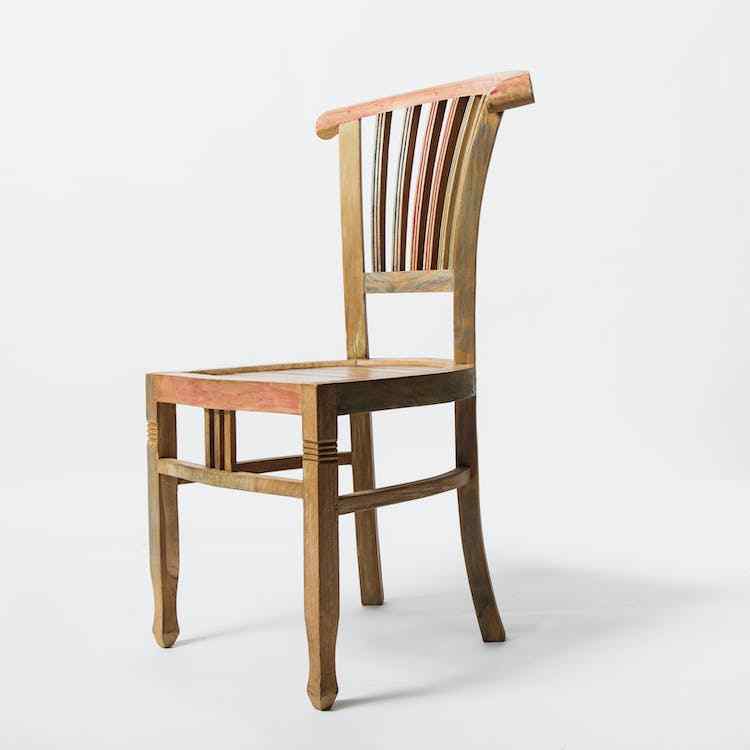17 Signs: When a Woman is Jealous of Your Looks
In the complex world of social interactions, jealousy can manifest in various forms. When it comes to physical appearance, recognizing the subtle and sometimes not-so-subtle signs of jealousy can be insightful. This article delves into the topic of “Signs a Woman is Jealous of Your Looks,” exploring how this form of envy can surface in everyday interactions.
Recognizing the Subtle Indicators
Overly Critical Comments
One of the primary “Signs a Woman is Jealous of Your Looks” is when she makes overly critical comments about your appearance. These remarks are often disguised as jokes or constructive criticism but can have a biting edge to them. It’s not just about what is said, but also how it’s said. The tone can reveal a lot about the underlying feelings of jealousy.
Excessive Comparison
Another telltale sign is when a woman constantly compares herself to you. This can manifest in her frequently pointing out differences in looks, style, or grooming in a way that seems competitive or insecure. These comparisons often come from a place of envy and can be a clear indicator of her feelings about your appearance.
17 More Overt Signs of Jealousy
Mimicking Your Style
When someone is envious of your looks, they may start to subtly emulate your personal style or grooming choices. This type of imitation, often considered the sincerest form of flattery, may indicate a deep desire to possess the same qualities they admire in you. Look out for instances where their once distinctive personal preferences begin to mirror your own – from the way they style their hair to the specific brands of clothing they choose to wear. It’s fascinating how the influence of your unique taste can inspire others to redefine their own sense of style.
Insincere Compliments
A woman who is jealous of your appearance might give you compliments that feel hollow or come with a slight twist that diminishes the praise. These backhanded compliments often serve to reveal their envy while superficially maintaining a facade of friendliness. It’s important to note that these remarks may be subtly crafted to undermine your confidence or highlight their own insecurities. Detecting the insincerity in these remarks requires listening for subtle undertones of resentment, sarcasm, or even passive-aggressiveness. By paying attention to the context, tone, and body language accompanying these compliments, you can gain insight into their true intentions and protect yourself from their negative influence.
Withdrawing or Excluding Behaviors
Jealousy can also lead to more exclusionary behavior. For example, a woman might react to her feelings of jealousy by withdrawing from social interactions or actively excluding you from group activities. This can manifest in various ways, such as not receiving invitations to events that you would normally attend or being left out of conversations. It might seem counterintuitive, but this distancing is sometimes a coping mechanism used to manage their feelings of jealousy without engaging in direct confrontation. By creating distance, they attempt to find solace and regain a sense of control over their emotions.
Physical Reactions and Body Language
Observing body language can provide valuable clues to underlying feelings of jealousy. Pay attention to physical signs, such as a forced smile that doesn’t reach the eyes, an overly stiff posture, or even subtle eye-rolling. These non-verbal indicators often convey a sense of discomfort or disdain. It’s important to note that these reactions might be unintentional, but they can be easily spotted in situations where your appearance garners positive attention from others. So, keep an eye out for these subtle cues and gain a deeper understanding of the complex world of human emotions.
Passive-Aggressive Communication
Another telltale indicator of jealousy is a noticeable shift towards passive-aggressive communication. When a woman feels envious of your appearance, she might resort to leaving snarky comments, offering unsolicited advice that borders on criticism, or making ambiguous statements that could be interpreted in multiple ways. These sorts of communications are often aimed at undermining your confidence while simultaneously allowing the person to deny any hostile intent. It’s important to pay attention to these subtle cues and address them with empathy and understanding, as jealousy can often stem from insecurities and a fear of inadequacy. By fostering open and honest communication, we can work towards resolving conflicts and promoting healthier relationships.
Overemphasis on Flaws
In some cases, a jealous individual might focus excessively on any flaws or mistakes you might make. Instead of wholeheartedly celebrating your successes or the qualities they admire in you, they tend to fixate on those areas where you fall short, magnifying them to an exaggerated extent. This behavior is driven by their inner turmoil and dissatisfaction, which they project onto you as a way to temporarily alleviate their own insecurities. It is important to recognize that this kind of behavior stems from their own internal struggles and does not reflect your true worth and capabilities. By understanding this, you can maintain your confidence and resilience in the face of their negativity.
Backhanded Compliments
When jealousy is in play, compliments may often come with a sting. They might seem praiseworthy on the surface, but a closer look reveals that they are actually laced with subtle digs. These backhanded compliments are a common tactic used by those who experience envy but don’t want to appear overtly antagonistic. For example, imagine a scenario where a woman approaches you and expresses admiration for your outfit. At first, you feel flattered, but her words quickly take a turn as she hastily adds a quip about it being “brave” to wear something so bold or eye-catching. This seemingly innocent remark implies that your fashion choice is questionable and undermines the genuine praise she initially gave. It’s fascinating how envy can manifest in such covert ways, where compliments become veiled insults.
Reluctance to Share Joy
Jealousy can also manifest in various ways, including a distinct reluctance to share in another’s happiness. For instance, if a woman envies your appearance, she may exhibit disinterest or even discomfort when others praise or acknowledge your look. Instead of joining in the positive reactions, her response might be muted or absent, indicating a grudge stemming from envy. This can be observed through subtle body language cues, such as crossed arms, averted gaze, or a forced smile. It is important to recognize these signs and address the underlying feelings of envy in order to promote healthy relationships and emotional well-being.
Cold Shouldering
A cold shoulder, characterized by a sudden withdrawal of friendship or warmth, can be another sign of jealousy. If a woman begins to avoid you or becomes less communicative after you’ve received a compliment or recognition for your appearance, it may be due to envy. This could manifest in subtle ways such as avoiding eye contact, giving curt responses, or distancing herself emotionally. It’s important to pay attention to these cues and address any underlying issues to maintain healthy relationships and open communication.
Over-Competitiveness
An envious woman might turn everything into a competition, especially in social contexts that highlight your appearance. Whether it’s about having the latest accessories, such as designer handbags or luxury watches, or sporting the newest fashion trends, like fashionable outfits or trendy hairstyles, she may attempt to outdo you at every opportunity, driven by a deep-seated need to prove herself superior and gain validation. This constant comparison and one-upmanship can create an unhealthy dynamic, impacting both individuals involved and the overall atmosphere of the social setting. It is important to recognize and address these behaviors, fostering a more positive and supportive environment based on genuine connections and shared interests.
Rumor Spreading
Jealousy, that powerful emotion, can drive individuals to resort to various tactics in an attempt to harm your reputation or divert attention from your admirable qualities. One such strategy is the circulation of unfounded rumors or gossip, a means to tarnish your image and undermine your achievements. By spreading misinformation or exaggerations about you, those envious souls try to level the playing field, which they perceive as unbalanced due to their own feelings of envy. It is crucial to recognize and address these actions, standing firm in your truth and not allowing their misguided attempts to derail your progress.
Inquiring about Your Routine
A not-so-obvious sign of jealousy may include prying into your beauty routine or personal habits. This curiosity can seem innocent, but often stems from a deep-seated desire to identify any “secrets” that they believe give you an edge over them. Perhaps they hope to adopt these practices themselves to level the playing field, or maybe even consider sabotaging your efforts in a misguided attempt to bring you down. It’s important to recognize these subtle signs and navigate them with compassion and understanding.
Excessive Criticism
In tandem with highlighting flaws and imperfections, excessive criticism, even about inconsequential details of your appearance, can be a clear indication of deep-seated jealousy. This type of feedback is often unsolicited and disproportionately negative, revealing the critic’s envious feelings and their inability to handle your success or confidence. It’s important to recognize that their criticisms say more about them than they do about you, and to not let their negativity affect your self-esteem or undermine your self-worth. Remember, you are the one in control of your own happiness and should not let the jealousy of others dim your shine.
Solicitation of Validation
A woman who is jealous might frequently seek validation regarding her own appearance, often fishing for compliments or reassurances in an attempt to bolster her self-esteem when compared to yours. This behavior indicates an underlying insecurity and a comparison-driven mindset influenced by the jealousy she harbors. It’s important to recognize that her actions stem from a deep-seated fear of inadequacy and a desire to feel validated in her own worth. By understanding this, we can approach the situation with empathy and compassion, fostering a healthier and more supportive environment for both parties involved.
Disparagement of Your Successes
In the face of jealousy, some individuals may resort to belittling or undermining your achievements, attributing them to mere luck or external factors, rather than acknowledging your true abilities. This act of minimization is a reflection of their envy and their ongoing struggle to genuinely accept and appreciate the magnitude of your accomplishments. It serves as a reminder of the importance of staying true to yourself and not allowing the negativity of others to overshadow your well-deserved success.
Diminished Praise
When envy is present, even compliments can come with a sting. Backhanded compliments or praise that feels forced or insincere can be an indicator that her applause is clouded by jealousy. It’s as if she can’t help but mask her true feelings of resentment with words that sound positive, but hold a hidden agenda. These disguised compliments may seem harmless on the surface, but they reveal a deeper undercurrent of jealousy that taints her ability to genuinely celebrate the success or achievements of others. It’s important to be aware of these subtle signs and recognize when someone’s praise is not as genuine as it appears.
Social Media Stalking
Excessive monitoring or stalking of your social media profiles can be another tell-tale sign of jealousy. It is when an individual goes beyond simply scrolling through your posts and delves into scrutinizing your online life. They may do this to find fault or draw comparisons to their own, often keeping tabs on you in an almost obsessive manner. This behavior can manifest in frequent checking of your profiles, analyzing your every activity, and even reaching out to others to gather information about you.
The Impact of Social Media
Online Interactions
In today’s digital age, “Signs a Woman is Jealous of Your Looks” can also be evident in online interactions. This might include passive-aggressive comments on your photos, a lack of engagement with your posts, or even copying your social media style. Social media provides a platform for jealousy to manifest in unique ways.
Psychological Indicators of Jealousy
Projected Insecurities
When a woman is jealous of another’s looks, she may project her own insecurities outward, critiquing or making negative comments about the other person’s appearance. This reaction is a defense mechanism aimed at deflecting attention away from her own perceived shortcomings.
Competitiveness in Appearance
A heightened sense of competition regarding appearance can emerge if a woman feels envious of another’s looks. She might go to great lengths to outshine or imitate the person she is jealous of, viewing physical attractiveness as a battleground for attention and affirmation.
Emotional Turbulence
Jealousy can contribute to a rollercoaster of emotions, from anger and resentment to sadness and frustration. If a woman is experiencing jealousy based on another’s appearance, her emotional state may become increasingly volatile or sensitive, particularly in discussions or situations involving beauty and personal image.
Navigating Jealousy in Relationships
Friendships and Acquaintances
Understanding these signs is crucial, especially in friendships and acquaintances. It’s important to approach the situation with empathy and understanding. Recognizing that jealousy often stems from a person’s insecurities can help in addressing the issue delicately and constructively.
Professional Environments
In professional settings, jealousy over looks can be more nuanced but just as impactful. It’s essential to maintain professionalism and address any issues directly but sensitively. Creating an environment of mutual respect and support is key to navigating these situations.
Conclusion
Identifying the “Signs a Woman is Jealous of Your Looks” requires a keen eye for social cues and an understanding of human behavior. Whether it’s through critical comments, imitation, or online interactions, these signs can reveal underlying feelings of envy. Dealing with such situations with empathy and tact is crucial for maintaining healthy relationships in both personal and professional spheres.







